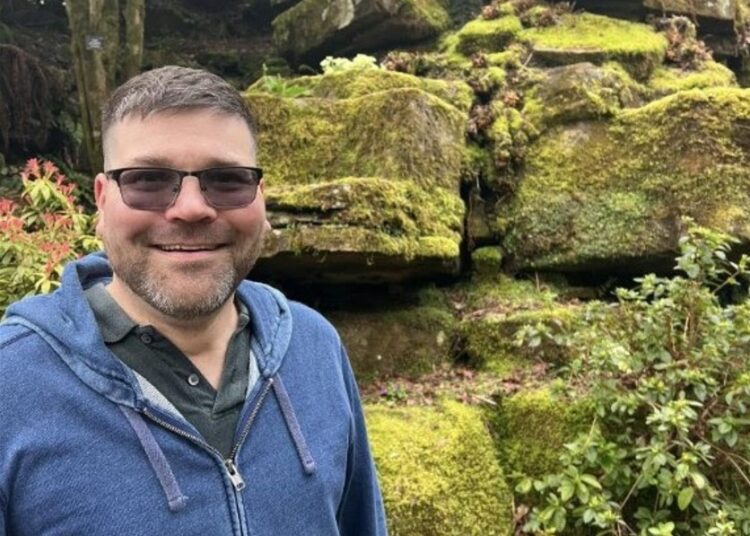Children’s television channel CBBC is screening a safari with a difference featuring Brighton University expert Andy Chandler-Grevatt as British Science Week gets under way.
Dr Chandler-Grevatt, a lecturer at the university and founder of Moss Safari, was due to share the magical properties of moss on air today (Monday 11 March).
He said: “I see moss differently to most people. Ever since learning that each plump green cushion of moss is its own island, with its own ecosystem and its own weird and wonderful microscopic inhabitants, I’ve been hooked. What started as a hobby has become a passion.”
Dr Chandler-Grevatt, who lectures in science education in the university’s School of Education, was so enthusiastic about his hobby that he founded Moss Safari three years ago.
He hopes to help other educators introduce students to the wonders that can be found in these miniature ecosystems.
The idea behind a “moss safari” is to show pupils the “big five” micro-organisms that you will find in moss samples: nematodes, mites, tardigrades, rotifers and gastrotrichs.
The university said: “The beauty of it is that it requires almost no equipment: just a small sample of moss and a microscope.
“In noting their findings and using systematic approaches to data collection and test predictions, pupils also get an engaging introduction to the scientific method.”
Dr Chandler-Grevatt said: “As a teacher educator, it was a logical step to introduce moss safaris to school children.
“Under the microscope, the moss ecosystem comes to life in an accessible way. And the idea of the ‘big five’ is something that children find exciting and engaging.”
The BBC obviously agreed because Dr Chandler-Grevatt was invited to deliver one of the organisation’s Teach Live Lessons for British Science Week 2024.
The programme was due to air on CBBC at 11am today (Monday 11 March) and will also be available on the BBC Teach website.
Dr Chandler-Grevatt said: “The BBC asked me to go in search of tardigrades as part of an invertebrate-themed lesson which led to me taking my microscopes, a sample of moss and my enthusiasm to be recorded to a bug park in Norwich.
“It was a very new experience for me and I think the tardigrades were better than me on screen.
“However, I hope it will help to raise awareness that a moss safari is something primary teachers can do with their children.”
Brighton University said: “It doesn’t stop there. Andy believes that going on a moss safari could spark a lifelong interest in science in students – or even lead to new discoveries.”
Dr Chandler-Grevatt said: “A moss safari shows children that the science isn’t done yet. There is space for citizen scientists – and actual scientists – to become specialists in specific organisms.
“Children encounter many organisms beyond the ‘big five’, some may be undiscovered species. It is important for teachers to say ‘I don’t know’ and let children know that the science isn’t finished yet. There is a need for scientists in the future. We need experts on the microscopic.”
British Science Week is a 10-day celebration of science, technology, engineering and maths taking place from Friday 8 March to Sunday 17 March.
For more, click here.









